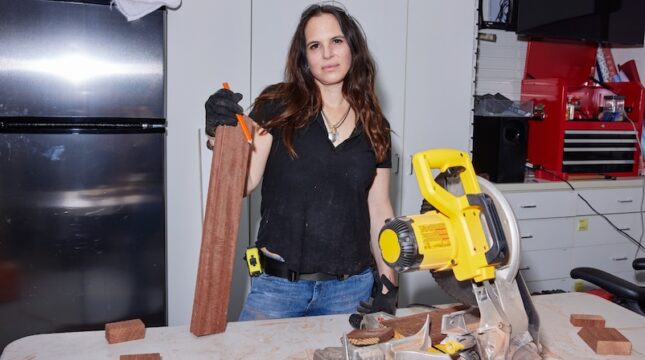How to become a handyperson in California
Here’s an overview of what’s required to start a handyman business in the Golden State. Note, that these requirements are at the state level; local requirements may also apply, so check with the municipality where you plan to operate.
1. Get a contractor license
If you take on work valued at more than $1,000, you need a valid contractor license. Most domestic repair persons will probably get a B-2 Residential Remodeling Contractor’s license.
You’ll need to print out and mail your application to the CSLB. You must also submit a check or money order for the $450 application fee.
Upon approval of your application, you must pass two licensing exams:
- Law and business exam
- Trade exam
After passing the exams, you must complete the following steps:
- Pay a licensing fee of $200
- Submit your fingerprints for a background check
- Obtain a contractor bond
- Provide proof of insurance
Learn more about getting a contractor license in California.
2. File state income tax
All businesses must file with the Franchise Tax Board (FTB) and with the Internal Revenue Service (IRS).
3. Register your business
If you’re a sole proprietor, you don’t need to get a business license, but if you’re forming a partnership, an LLC or a corporation, you’ll need to file with the California Secretary of State.
4. File paperwork for having employees (optional)
If you will have employees, you must:
Local California handyman business license requirements
Besides fulfilling the state-level business license and insurance requirements in California, it’s important to check local regulations as well.
Los Angeles
If you’re doing business in Los Angeles, you need a Business Tax Registration Certificate (BTRC) from the City’s Office of Finance. This includes handypersons.
In your first year as a handyman, you won’t be exempt from taxes. However, you will only have to pay them once you renew your BTRC in the second year. This is known as the Back Tax.
Finally, if you’re a handyman in Los Angeles, you must meet the insurance requirements set by the California Contractors State License Board if you require licensing.
San Diego
Looking to start your handyperson business in San Diego? You’ll need a Business Tax Certificate for tax purposes. But don’t forget, this certificate doesn’t replace other legal requirements.
If you’re planning on taking on a job that costs more than $500, you’ll need a state contractor license. And for certain tasks like plumbing or electrical work, the Development Services Department will require you to have specific city permits.
While San Diego doesn’t have its own insurance rules for handypersons, you’ll still need to follow the State of California’s rules, listing the City of San Diego as an additional insured on your policies.
Lastly, your Workers’ Compensation policy should include an endorsement for the waiver of subrogation of rights against the City of San Diego and its representatives.
San Jose
In San Jose, handypersons and all other businesses must register for a Business Tax Certificate with the City’s Finance Department.
This certificate does not entail clearance for zoning, fire code, occupancy, or any other permits or licenses that may be required for the specific type of business.
San Jose does not impose city-specific insurance mandates on handypeople, but they must adhere to state-level requirements set by the California Contractors State License Board.
San Francisco
Handymen in San Francisco need to register their business with the City and County of San Francisco through the Office of the Treasurer and Tax Collector.
While this registration is mandatory, it’s different from obtaining a separate City Business License, which only some businesses need to obtain.
The insurance requirements for a handyman in San Francisco are governed by the California Contractors State License Board (CSLB).








